Multi-Pitch Instructor Program
%20(1).avif)
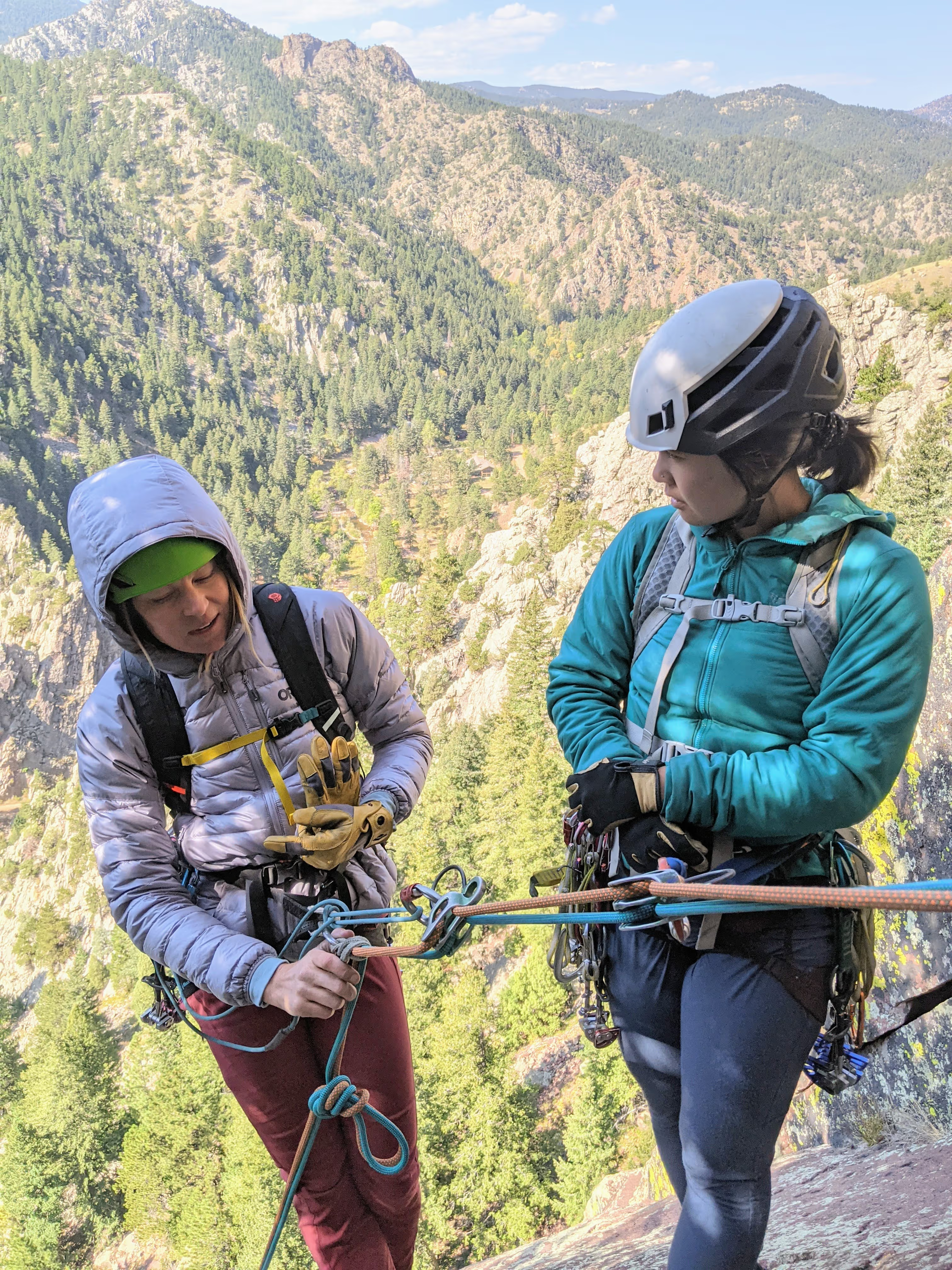
About
The Multi-Pitch Instructor Course & Exam prepares candidates to guide 5th class multi-pitch rock climbs up to commitment Grade II, on routes that have simple approaches and descents with minimal short-roping. This program emphasizes providing a great client experience while adequately managing risk for both the client and the guide. The description below outlines the steps to become an AMGA Certified Multi-Pitch Instructor. The progression begins with the Single-Pitch Instructor Course and Exam, followed by the Rock Guide Course, and then the Multi-Pitch Instructor Course and Exam.
Please note, the AMGA welcomes both skiers and splitboarders into the program. For simplicity, “ski” is used throughout this page. Please note that when “ski” is used, it is meant to include “ski and splitboard” or “skier and splitboarder.”
Program Overview
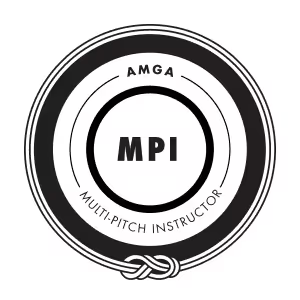




Program Details
The SPI Course is a 27-hour training course that typically runs as three consecutive nine-hour days or a mix of day classes with evening sessions. This program is the first step in earning one’s SPI certification and completion of the SPI Course is required prior to pursuing the SPI Exam. The SPI Course has a sunset time of two years. After two years, if the SPI Course graduate has not passed an SPI Exam, they will need to retake the SPI Course prior to pursuing the SPI Exam. There is no minimum time frame between successful completion of the SPI Course and when you can participate in the SPI Exam, as long as the candidate meets the prerequisites for the SPI Exam. Most successful candidates practice their skills for 3-6 months prior to taking the SPI Exam.
Candidates who are unsure of their qualifications would benefit from reaching out directly to the program provider teaching the program. The provider will have good insights into steps towards preparing for the SPI Course. Alternatively, hiring an AMGA Certified Multi-Pitch Instructor, Rock Guide, or Mountain Guide to evaluate and enhance their skill level prior to enrollment in an SPI Program may be beneficial.
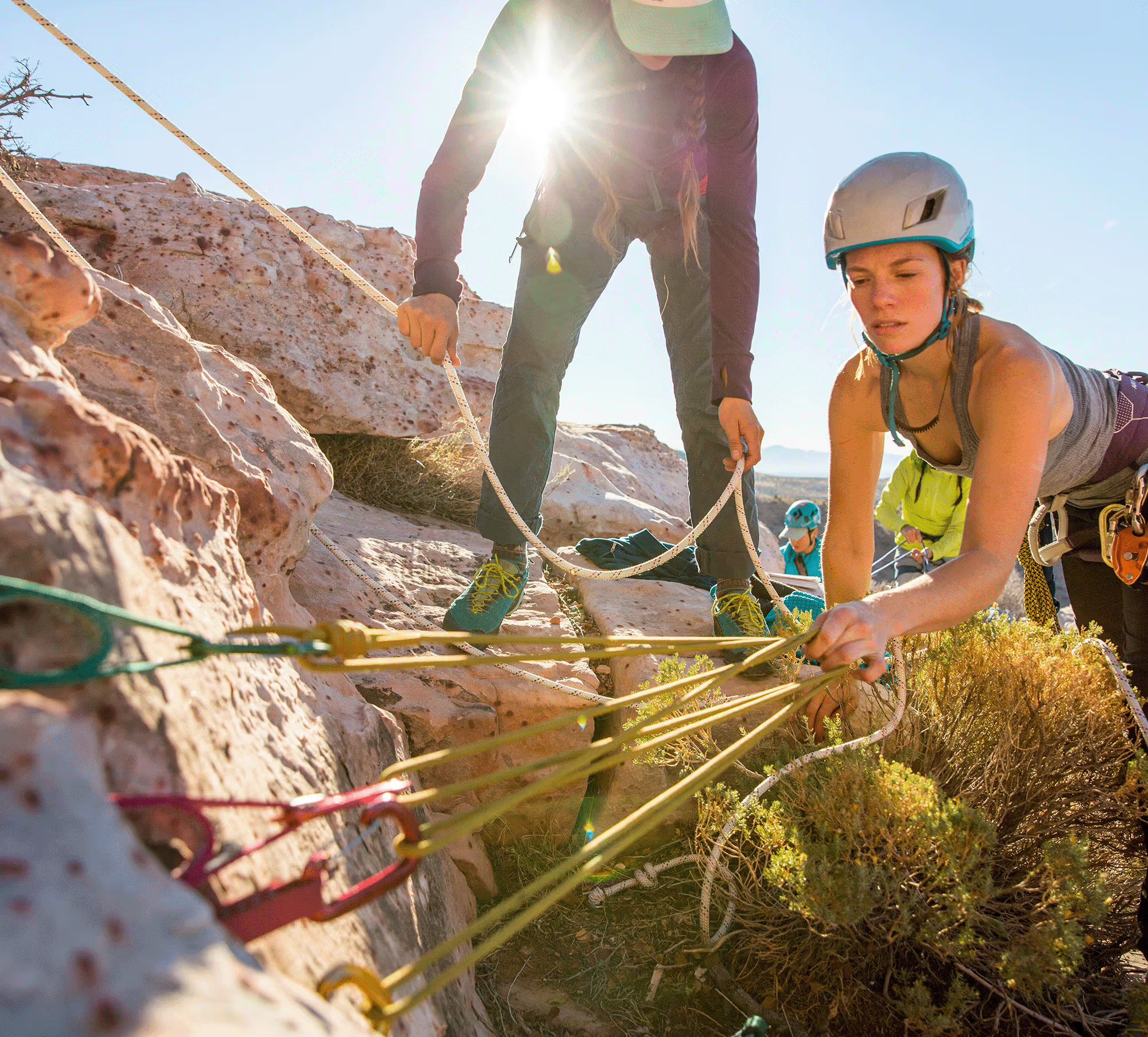
- Have a genuine interest in rock climbing and instructing on single pitch crags.
- Are at least 18-years old at the time of the course.
- Have at least 12 months prior outdoor climbing experience.
- Are active climbers with traditional anchor building and traditional lead climbing experience (leader placing pro).
- Have traditionally led a minimum of 15 rock climbing routes (any grade).
- Single pitch traditional lead climbing with traditional anchor building is preferred. A multi pitch route would meet one of the fifteen requisite route requirements and does not count towards multiple routes.
- Are capable of comfortably climbing 5.8 while on a top rope.
The SPI Exam is a minimum of 16 hours run over a two-day period. There is no minimum time frame between successful completion of the SPI Course and when you can participate in the SPI Exam, as long as the candidate meets the prerequisites for the SPI Exam. Most successful candidates practice their skills for 3-6 months prior to taking the SPI Exam.
First aid training is not a pre-requisite for participation in a course or assessment. For SPI certification to be valid, however, instructors must hold appropriate medical certification for the location in which they will be working. SPI certification is not valid for instructors whose medical certification has lapsed. It is the responsibility of individual instructors to maintain appropriate medical certification.
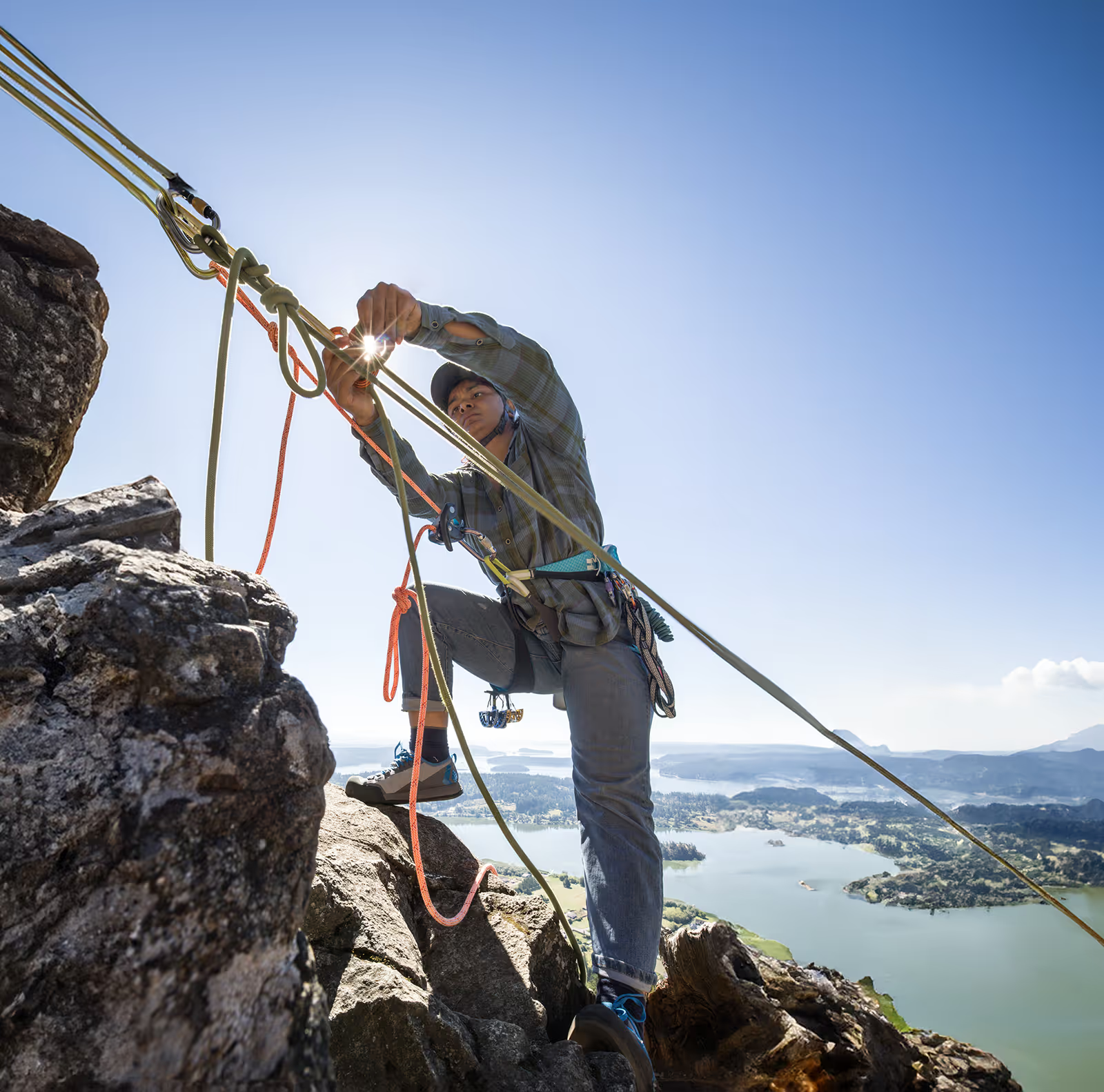
- Have successfully completed an AMGA Single Pitch Instructor Course within the past 2 years. For those renewing, their SPI certification must be valid or within 1 year expiration.
- Have led a minimum of 40 traditional rock climbing routes.
- A large number of these should be at the 5.6 grade (or higher) in various locations and on a variety of different rock types. A multi-pitch route would meet one of the forty requisite route requirements and does not count towards multiple routes.
- A large number of these should be at the 5.6 grade (or higher) in various locations and on a variety of different rock types. A multi-pitch route would meet one of the forty requisite route requirements and does not count towards multiple routes.
- Are capable of comfortably lead climbing (leader placing own protection) on any 5.6 traditional route. Candidates will demonstrate their leading ability on a variety of routes during the assessment.
- Are capable of comfortably climbing 5.8 with a top rope belay. Candidates will demonstrate their top rope climbing ability during the assessment.
The Rock Guide Course (RGC) is the entry-level course in the AMGA Rock Guide Program and the recommended starting point for the Mountain Guide Track. Designed for guides with an extensive rock climbing background, this course focuses on guiding techniques for routes up to Grade III and 5.9+, with an emphasis on risk management, technical systems, and client experience.
The RGC includes indoor and outdoor classroom time aimed at transforming experienced recreational rock climbers into professional guides. The course is designed to refine guiding techniques with direct supervision, instruction, and feedback on a variety of rock terrain including single and multi-pitch rock routes with a variety of guiding challenges.
Participants are expected to have a strong foundation in recreational climbing skills and prior knowledge of knots, belaying, anchors, and protection strategies. You should be capable of leading the climbs listed on your submitted resume and arrive physically, mentally, and emotionally prepared for multiple consecutive days of climbing and instruction over the entirety of the course. Students should be prepared for early starts and long days that are physically and emotionally demanding.
To successfully complete the RGC, students must be able to demonstrate the following:
- Comfortably and safely lead traditional and sport routes up to 5.9+
- Proficiency with basic knots, including but not limited to: rewoven figure 8, figure 8 and overhand bight knots, bowline, clove hitch, munter hitch, munter mule hitch, flat overhand, double fisherman's, and autoblock, prusik and klemheist friction hitches
- Proficiency with multiple types of belay devices including assisted braking devices (ABDs)
- Proficiency with a variety of rappel devices
- Demonstrate proficiency at the Apprentice Rock Guide level in the following six assessment categories: risk management, client care, technical systems, terrain assessment, movement, and professionalism
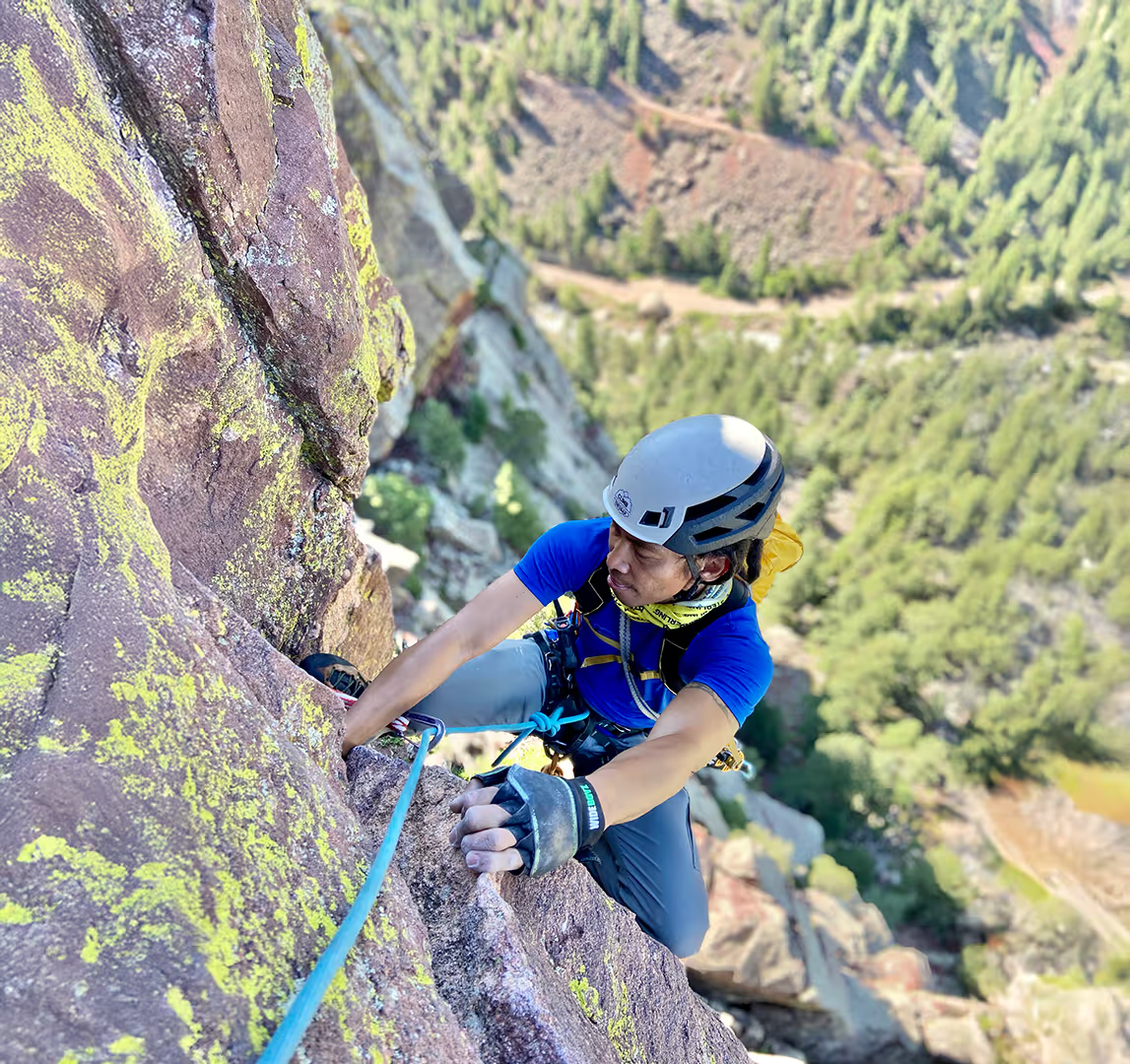
- Current AMGA member
- Current CPR Certification
- Current approved Wilderness First Responder Certification (WFR)
- Completion of the below route requirements, submitted via resume with application:
- Led 10 traditional climbs rated 5.10a or harder on various rock types (single or multi-pitch)
- Led or shared lead on 10 grade III trad rock routes
- Led or shared lead 50 multi-pitch rock routes
All students on Mountain Guide Programs must meet AMGA Essential Eligibility Criteria.
Additional Experience & Movement Criteria for RGC
- Minimum five years personal rock climbing experience
- Familiar with LNT Practices
The Multi-Pitch Instructor Course & Exam includes instruction, coaching, debriefing, and assessment. The program is 8 days in length. There are 5 days of instruction and course work and a 3-day assessment.
The Course portion of the program includes
Principle-based learning routed in giving candidates strategies for problem-solving through coaching and practical application in simulated guide/client scenarios
The Exam portion of the program includes
2 days of guiding on multi-pitch routes
1 day of objective skills that assess proficiency with the AMGA Rock Rescue Drill and climbing movement at the 5.9 standard
Assessment Areas
- Screening of movement skills in rock terrain
- Proficiency with the AMGA Rock Rescue Drill
- Practical guiding days that include evaluation in the following nine categories: Risk Management, Client Care, Technical Systems, Application, Terrain Assessment, Movement Skills, Mountain Sense, Professionalism, and Instructional Techniques.
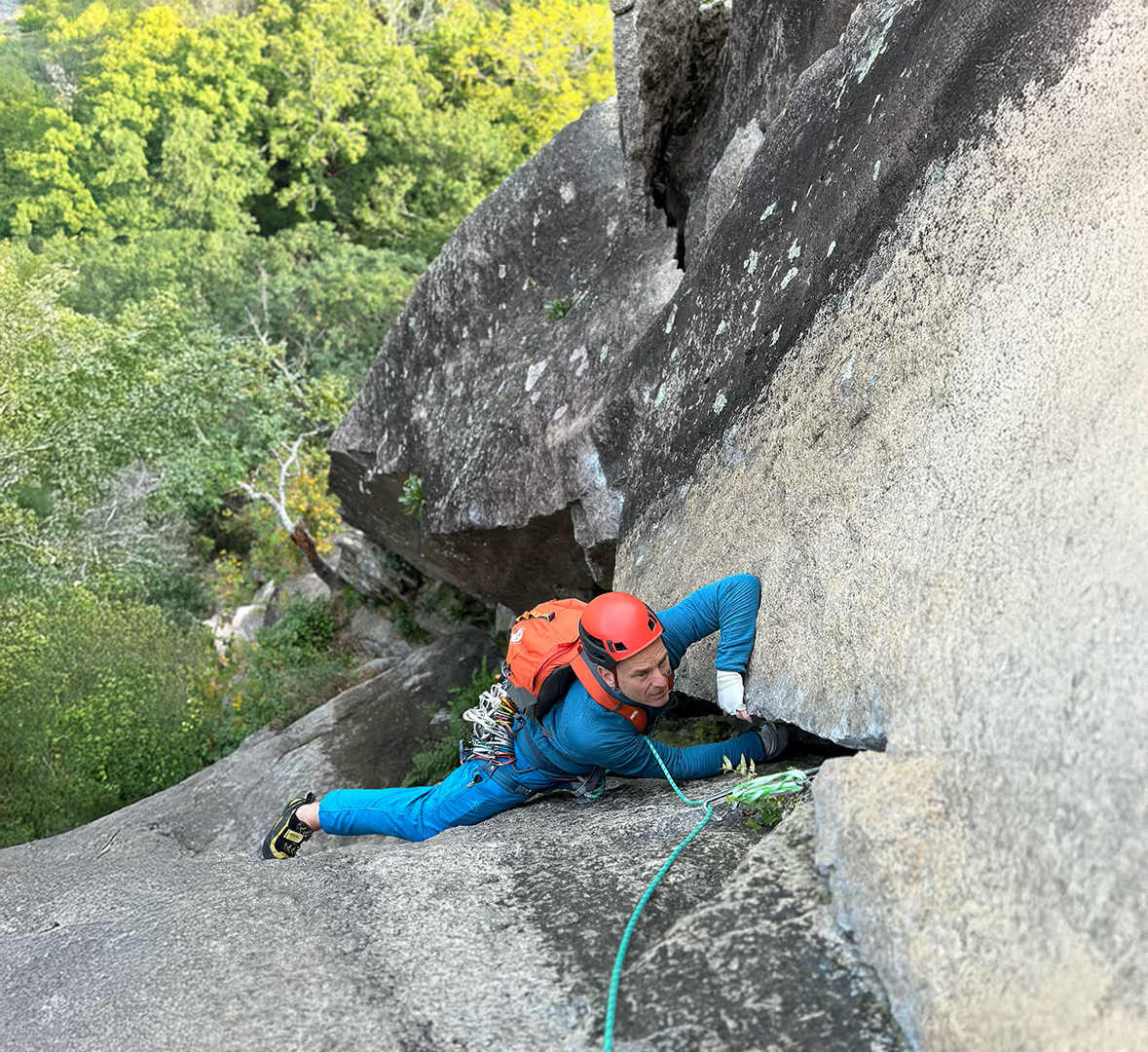
- Current AMGA member
- Current CPR Certification
- Current approved Wilderness First Responder Certification (WFR)
- Current Certified Single Pitch Instructor (successfully completed both the SPI Course & the SPI Assessment)
- Current Apprentice Rock Guide or higher (minimum successful completion of the RGC)
- Completion of the below route requirements, submitted via resume with application:
- Since completing the RGC, led 25 traditional rock climbs (single or mutli-pitch)
- 15 of which are rated 5.10a or harder
- Since completing the RGC, led or shared led on 15 rock climbs that are 3 pitches or longer
- Since completing the SPI Assessment and the RGC, worked 20 days in Apprenitce Rock Guide terrain (this may include SPI terrain)
- 5 of these days must be on multi-ptich rock routes and include a documented supervising guide
- Since completing the RGC, led 25 traditional rock climbs (single or mutli-pitch)
Additional Experience and Movement Criteria for MPI
- Confidence leading onsite traditional and sport climbs up to 5.9 at the time of the program
- Mastery of basic knots including figure 8, bowline, clove hitch, munter hitch, mule hitch, prusik, flat overhand, double fisherman, klemheist and auto-block
- Mastery of mechanical and non-mechanical belay devices
- Mastery of raising systems and mechanical advantage
- Advanced knowledge of LNT practices
Program Schedule
Application Process
Ski & Splitboard Guide Program
Master backcountry ski and splitboard guiding for peak descents, bowls, trees, and glacial terrain.


